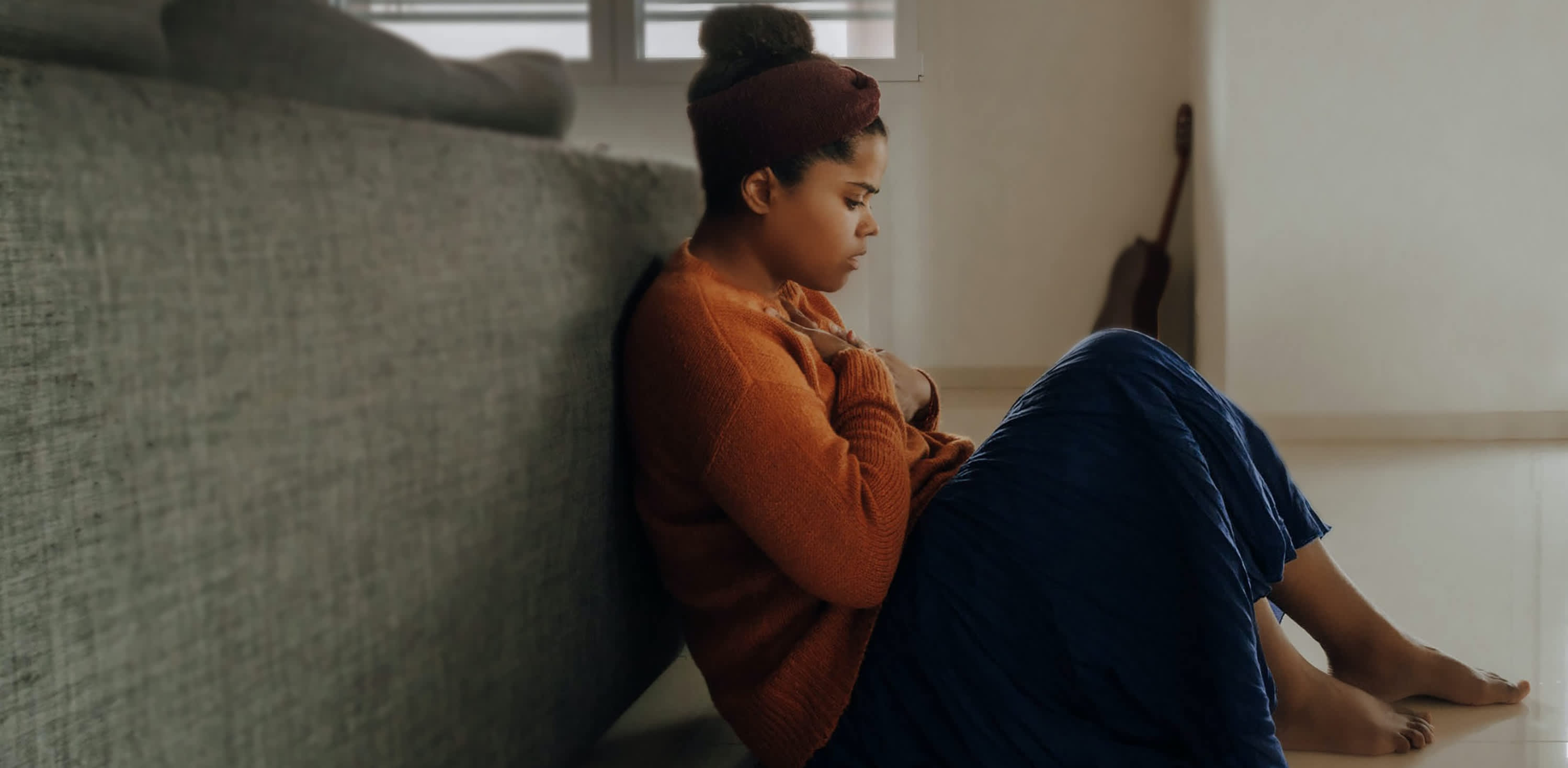This is an excerpt from the Desperate for Hope Bible Study.
I contracted a mild case of polio as an infant in India, but the doctor's misdiagnosis left me completely paralyzed. Because some muscles inexplicably regenerated later, combined with twenty-one surgeries, I was eventually able to live a normal life, albeit with significant limitations. I went out-of-state to college, lived and worked in Boston, moved across the country to business school, got married, had a busy career, and then had children. As a young mom, I was obsessed with all things creative like cooking, scrapbooking, painting, and making jewelry. I pushed myself past my limits.
Then the escalating pain and weakness started. After countless medical appointments, I was eventually diagnosed with post-polio syndrome, a debilitating condition that would likely leave me a quadriplegic again. The doctors were adamant that I immediately stop doing everything nonessential, saying the more I did, the weaker I would get. They likened my energy to money in a bank—everything I did was making a withdrawal. My job was to conserve my strength.
I was devastated. I couldn't see how God could possibly use this horrifying diagnosis, and I wondered how I could endure it. I had so many questions—Why would God make me creative, let me love cooking and painting, have two young daughters to take care of, and then take all my strength away? Why would God do this to me after I'd been faithful?
Why would God do this to me after I'd been faithful?
Vaneetha Risner
In my journal dated May 2, 2003, several weeks after my diagnosis, I wrote:
I feel trapped inside my body. I go back and forth between depression and hope because You have ordained this. I would never have chosen this path and feel injustice and regret over what is happening, but I give it to You. Use it for Your glory and help me to see it as beautiful . . . I asked You to help me put to death pride in my life—continual dependence will do that. But does it have to be this way? I need to trust that You are sufficient and may call me to depend on others. But I don't want others to have power over me. To say no and leave me alone and vulnerable. I remember being in the hospital—being helpless and unable to do anything for myself. Waiting for someone to bring me a bedpan to go to the bathroom. I never wanted to live my life that way again. The hardest thing about this is the loss of my self-sufficiency. But I see You asking me, "How much do you want of Me?" It's been a hard ten years and each loss has been so hard but with what You've taken away, I see You so much more clearly. Lord, help me to worship where I am—not where I want to be. This quote from A Grief Observed is staying with me. "The more we believe that God hurts only to heal—the less we can believe that there is any use in begging tenderness. A cruel man might be bribed . . . but suppose that what you are up against is a surgeon whose intentions are wholly good. The kinder and more conscientious he is, the more inexorably he will go on cutting. If he yielded to your entreaties—if he stopped before the operation was complete—all the pain up to that point would have been useless."
I gave up my hobbies as my body got weaker. I started writing using voice recognition software just to process my thoughts since typing was no longer an option. Years later, after my husband left, I started blogging, and a major Christian website providentially ran an article that I submitted to them. The enthusiastic response from readers surprised me. I never thought God would give me a ministry through writing.
While I still grieve what I've lost and continue to lose, God has used those losses in unanticipated ways. Writing has become what painting used to be—a way to express my creativity, with the added joy of knowing that my words are helping others. Seeing my pain accomplish a greater purpose has helped me process that ongoing loss.
Your struggles are not a punishment for your past but can be a preparation for your future. Your story is enfolded in God's story; He is in sovereign control of your life
Vaneetha Risner
Suffering can blur your perspective, especially if you view it through the lens of despair. It's easy to assume your present pain will go on forever, that God is against you, or that your entire life is a mess. Those are lies from Satan, which can make you feel trapped, convinced the situation cannot change. To pull out of it, you need to reframe your perspective.
Your struggles are not a punishment for your past but can be a preparation for your future. Your story is enfolded in God's story; He is in sovereign control of your life. Reframing the narrative of your suffering to see God's role in it and remembering your pain will end and does not define you, can transform how you experience it.
In this 7-session study, Vaneetha Risner tackles the hard questions and offers a scriptural framework to help you find hope in your pain. She will be a gracious guide through this difficult topic, walking with you as you meet women in the Bible who suffered loss, and sharing her own experiences of longing and grief. In the end, you’ll find that the answers to your deepest questions can be found in the character, goodness, and sovereignty of God.

